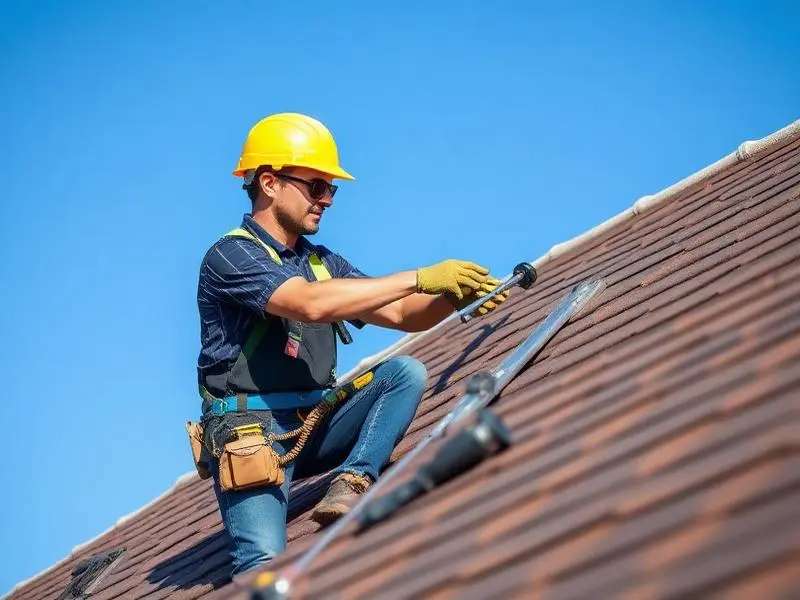Quality Materials
We use products designed to seal, waterproof, and weatherproof your structure effectively.
Timely Service
Efficient project completion with minimal disruption to your daily routine.
Professional Work
Experienced contractors dedicated to quality installation and customer satisfaction.
Our Roofing Services
Specialized in new installations and complete roof replacements for residential properties

New Roof Installation
Complete installation of quality roofing systems designed to protect your home for years to come.

Roof Replacement
Full roof replacement services using durable materials that seal and weatherproof your structure.

Professional Consultation
Expert guidance on selecting the right roofing solution for your property and budget.
Frequently Asked Questions
Find answers to common questions about our roofing services
Professional roofing services include roof inspections, emergency repairs and tarping, full roof replacement and installation, shingle and metal roofing, flat roofing (TPO/EPDM/PVC), gutter and flashing replacement, ventilation and skylight work, and storm-damage restoration.
Look for persistent leaks, missing or curling shingles, granules in gutters, visible sagging, dark streaks or mold, interior water stains, or roofs older than their expected service life; a professional inspection will determine whether repair or replacement is best.
Common options include architectural and 3-tab asphalt shingles, metal, tile, slate, cedar, and various single-ply membrane systems for flat roofs; the best choice depends on budget, local climate, roof slope, neighborhood appearance rules, and long-term maintenance preferences.
Most residential roof replacements take 1–5 days depending on home size, roof complexity, weather, permit timing, and material type; your project manager will give a more accurate timeline after inspection and permit approval.
Yes, most reputable roofers provide a free, no-obligation roof inspection and a written estimate; the inspection will identify damage, recommended work, timeline, and an itemized cost breakdown.
Insurance may cover roof replacement when damage is from a covered peril such as hail or wind, but coverage and deductibles vary by policy; document damage, contact your insurer promptly, and request a professional estimate to support a claim.
Roof projects typically include a manufacturer warranty on materials and a contractor warranty on workmanship; warranty lengths and coverage vary, so request written warranty details that specify what's covered, exclusions, and whether warranties are transferable.
Qualified roofing contractors carry required trade licenses and carry general liability and workers’ compensation insurance; always ask for proof of licensing and insurance and confirm the company follows local building code requirements.
Yes, a full-service roofing contractor will obtain necessary building permits, coordinate inspections with the local authority, and ensure the project meets code before final sign-off.
Request a free inspection through the landing page contact form or schedule a callback; provide your address, preferred times, and a brief description of the issue so the service team can prepare and confirm your appointment.